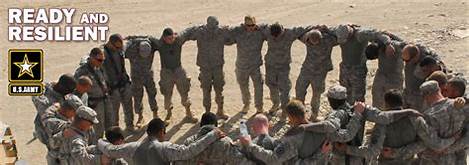In yesterday’s post, I scratched the surface in discussing some of the many benefits brought on by Covid-19. Today, I want to drill down deep into one particular benefit: digital discipleship and how it has been fast-tracked.
Let me begin by stating some generalities about the virus’s impact. For many, this initial interruption in life stirred some excitement because it was something new, but now this long-term disruption has turned those same feelings into angst. We are all grieving somewhat because we have all experienced a sense of loss knowing that things will never be the same. Many people are feeling anxious in mind, isolated in home, and uncertain about their future. People are evaluating their lifestyles and asking themselves what they can do with and what they can do without. People are having to constantly evaluate their life choices as their lives are being daily transformed. This is causing many people, Christian and non-Christian alike, to seek answers out by reading their Bible and by praying more. People are doing one of two things during this crisis: They are leaning into God and into their church or they are checking out on God and checking out on their church. Taking off from church or hanging back on God is not the way to go, even if you say you are just waiting for things to return to normal. This is because life moves on. It’s kind of like waiting for the Lord Jesus to return. You know he is coming back but it doesn’t give you permission to sit idle.
Covid-19 has gotten us all out of the status quo. It has forced us to become comfortable with the uncomfortable because we can’t control the uncontrollable’s. Before Covid-19, I had heard about virtual small groups or what many would call digital discipleship groups, but I wasn’t promoting the idea because quite honestly, it wasn’t my preference. In a pre-Covid-19 world, I would opt for having in-person discipleship any day over having digital small groups. I knew many young people preferred to meet online and many wouldn’t come to church until there was some kind of online engagement, but in some ways, I felt this was cop-out and in other ways, I just didn’t want to meet them where they were. You could just as well say I didn’t want the world to go in that digital direction. But in a post-Covid-19 world, there’s no turning back and my preferences on this matter don’t mean a thing.
Social media must be used as a tool for discipleship and engagement. Techies are learning just as much as we are in these times. Zoom will get even better with the interactive experience they provide us. Facebook now offers messenger rooms for up to 50 people to meet via video. These type of companies are just scratching the surface as their efforts to upgrade have been accelerated just as much as has our changing behaviors. We had to do something different than we were doing to reach the next generation because we weren’t reaching them where they were.
Churches are now seizing the moment, the 168, meaning the 168 hours in a week to minister to people. Sunday morning or Wednesday night aren’t the only things that matter and they never should have been. Churches should be open 24/7 to minister to a hurting community, and not just its own members. And yes, a lot of this ministry does occur online. Digital technology should assist us in our incarnational ministry, but it should never replace it. For example, once churches re-open, youth should still meet in-person, but a lot of the Zoom meetings and TicTok videos are going to continue. And shouldn’t they, if that’s where the next generation is spending hours upon hours every day?
Having established the fact that I now embrace digital discipleship, let me share with you some findings about how the next generation is viewing ministry in a post-Covid-19 world. If you are a bit older like me, this may be hard for you to understand, but the next generation is not experiencing Covid-19 in the same way that you and I are. Gen Z has grown up in a world of active shooters, international terrorism, and cyber predators. They have had to learn how to live and think about things in a radically different way than we did. For example, Gen Z can never remember a time where going to school, airports, etc. wasn’t safe. Whereas Covid-19 has forced many of us magnify the topics of safety and health, the next generation has always been concerned about their own safety and health. And as I have written previously, all of this has turned Gen Z into a resilient bunch, particularly the class of 2020, as I believe they will forever go down as the face of Gen Z.
The next generation is still in school and many are facing screen fatigue. By the time they have watched countless classroom videos and engaged in all of their social media and frequented websites, many are putting church on the back-burner. In the last 4 weeks, only 33% have livestreamed a Sunday morning worship service and 63% say they have not livestreamed their church or another church’s worship service. This is what I meant when I said “checking out” or “taking off.” If families can go to church together, I don’t see why they can’t go to church in their home together.
With all of the screen time that the next generation is logging, they have their own preferences. They see right through virtual recorded polished presentations and prefer that which is live and in the moment (remember TikToc). Gen Z prefers engagement over streamed content. In Barna’s free webcast yesterday on the state of the church (where I’m getting most of my information for this post), it was said, “For the longest time, it was thought ‘content is king,’ but now whereas content was king, ‘engagement is emperor.'” All this to say that offering the next gen an online experience is not enough. We must find ways to connect with them in a meaningful way. Of course, this is where digital discipleship comes into play.
Gen Z, also known as the Connected Generation, feels the impact of broad, global trends more than they feel loved and supported by others close to them. What this statement means is that we often think the next generation is doing well because they are young. But the research points out that of all the generations, Gen Z is the most lonely, board, and insecure. We struggle to empathize with their plight because we can’t see beneath the surface of what is happening inside of them beyond all of their “friendships” and screen time. This disruption is occurring at a very vulnerable moment in their life and as things are so fragile that Gen Z is having to develop many new friendships.
So you may say thanks for sharing, but ask, well, what does Gen Z want out of me? Good question! I hope that is why you are visiting this site. Gen Z wants you as a next gen leader to be visible, to be there for them. They need your prayer and emotional support. They want to share with you their stories and they want to engage in Bible study, not merely listen to what you have to say. This is what they need most right now from you! Engage, ask questions, and understand that what you see on the outside may be the wrong story. You may think they are doing great and discover they are not or you may think they are doing terrible and discover they are doing great. This is exactly why you should engage and ask questions. And remember its not just what the next gen needs from us. It’s what we, the church, need from them. We need their imagination and their know-how in how to navigate this new digital reality as it pertains to digital discipleship.










